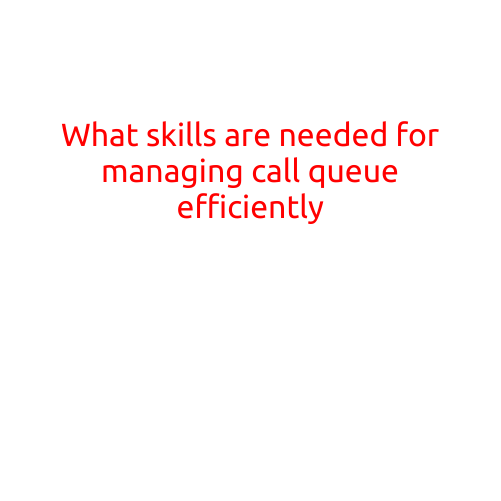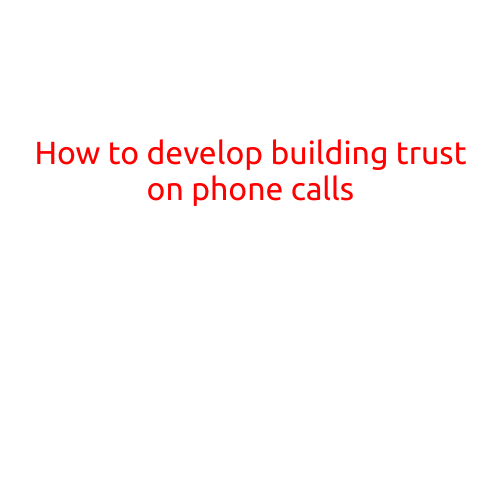
How to Develop Effective Call Management
Effective call management is crucial for any business that relies on phone calls to communicate with customers, clients, or partners. Poor call management can lead to missed opportunities, lost revenue, and a negative impact on customer satisfaction. In this article, we’ll explore the essential steps to develop effective call management strategies that can boost productivity, improve customer relationships, and drive business growth.
1. Establish a Clear Call Handling Process
Develop a clear and concise call handling process that outlines the steps to follow for each type of call. This includes identifying the purpose of the call, gathering necessary information, and taking action accordingly. Make sure to train all team members on the process to ensure consistency and efficiency.
2. Use Technology to Your Advantage
Invest in a reliable phone system that can manage multiple calls simultaneously and provides features such as voicemail, call forwarding, and call recording. Consider using a computer-telephony integration (CTI) system that integrates with your CRM software to provide real-time caller information and enable automated call handling.
3. Set Clear Expectations for Call Handling
Establish clear expectations for call handling by defining response times, hold times, and call abandonment rates. Communicate these expectations to your team and monitor their performance regularly to ensure they are meeting the standards.
4. Handle Calls Efficiently
Prioritize calls based on urgency and importance, and ensure that each call is handled efficiently and effectively. Use a call prioritization system that categorizes calls into high, medium, and low priority to ensure that the most critical calls are addressed first.
5. Provide Adequate Training and Coaching
Provide ongoing training and coaching to ensure that your team has the necessary skills and knowledge to handle calls effectively. Focus on developing their communication, problem-solving, and decision-making skills to improve call handling and customer satisfaction.
6. Monitor and Analyze Call Performance
Monitor and analyze call performance regularly to identify areas for improvement. Use call metrics such as call handle time, abandonment rate, and call volume to gauge performance and make data-driven decisions to optimize call management.
7. Implement Call Coaching and Quality Monitoring
Implement call coaching and quality monitoring to ensure that your team is providing exceptional customer service. Provide constructive feedback to team members and recognize outstanding performance to motivate them to continue delivering exceptional service.
8. Automate Call Routing and Distribution
Automate call routing and distribution to ensure that calls are directed to the most qualified and available team members. Use data-driven algorithms to route calls based on factors such as caller behavior, previous interactions, and real-time availability.
9. Offer Extension Options
Offer extension options such as voicemail, email, or live chat to enable customers to choose their preferred communication method. This can improve customer satisfaction and reduce call volume.
10. Continuously Improve and Evaluate
Continuously improve and evaluate your call management strategy to ensure that it is aligned with business objectives and customer needs. Conduct regular surveys and feedback sessions to identify areas for improvement and make data-driven decisions to optimize call management.
In conclusion, effective call management is critical for any business that relies on phone calls to communicate with customers, clients, or partners. By following the steps outlined in this article, you can develop a call management strategy that improves productivity, improves customer relationships, and drives business growth. Remember to continuously evaluate and improve your call management strategy to ensure that it remains aligned with business objectives and customer needs.





